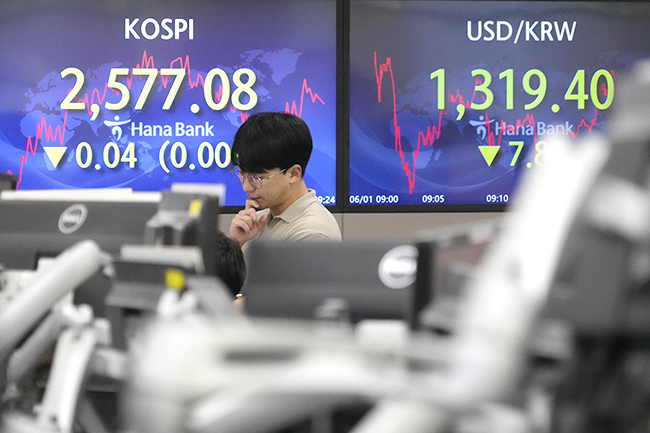TOKYO (AP) – Asian benchmarks were mostly higher Thursday after the United States (US) House of Representatives approved a debt ceiling and budget cuts package, avoiding a default crisis.
But the enthusiasm was muted by worries about the Chinese economy after disappointing recent data on a recovery in the world’s second largest economy, and a key driver of regional growth.
“Following recent disappointing economic data from China, the real economy levered stocks are likely to underperform. If economic data from China continues to miss expectations, more participants could start to forecast a lower China GDP for the quarters ahead,” Anderson Alves at ActivTrades said.
Japan’s benchmark Nikkei 225 rose 0.8 per cent to finish at 31,148.01. Australia’s S&P/ASX 200 gained 0.3 per cent to 7,110.80. South Korea’s Kospi quickly lost early gains to dip 0.3 per cent to 2,570.80. Hong Kong’s Hang Seng added nearly 0.1 per cent to 18,251.83, while the Shanghai Composite slipped less than 0.1 per cent to 3,202.44.
If the debt deal also passes in the Senate, government cheques will continue to go out and it would prevent financial upheaval at home and abroad ahead of the Monday deadline when the Treasury said the US would run out of money to pay its debts.
Wall Street slipped as stocks slumped worldwide Wednesday on worries about the strength of the global economy and inflation.

The S&P 500 fell 25.69, or 0.6 per cent, to 4,179.83. The Dow Jones Industrial Average dropped 134.51, or 0.4 per cent, to 32,908.27, and the Nasdaq composite lost 82.14, or 0.6 per cent, to 12,935.29.
Wall Street has been able to hold up pretty well recently, largely because of gains for a handful of tech companies and others getting swept up in the buzz around artificial intelligence. The S&P 500 managed to close out May with a modest gain.
Wall Street stocks pared their losses in the afternoon after a Federal Reserve official hinted the central bank may hold rates steady at its next meeting in two weeks.
Worries have been rising about an economic slowdown under the weight of much higher interest rates. The Federal Reserve has raised rates at a furious pace since early 2022 in hopes of getting inflation under control. But high rates work by hurting the economy and hitting prices for investments.
“We see this as a race for weakness between inflation and economic activity,” said Tony Roth, chief investment officer at Wilmington Trust.
Either inflation needs to break lower to return to the Fed’s target, which would allow it to go easier on interest rates, or the economy will fall into recession. Roth said both the economy and inflation have remained strong for longer than he expected: “It’s a very slow race to the bottom.”
In the bond market, the yield on the 10-year Treasury fell to 3.62 per cent from 3.70 per cent late Tuesday. It helps set rates for mortgages and other important loans that influence the housing and other markets.
The two-year yield, which moves more on expectations for Fed action, fell to 4.39 per cent from 4.46 per cent.
In energy trading, benchmark US crude rose 43 cents to USD68.52 a barrel. Brent crude, the international standard, fell 88 cents to USD72.66 a barrel.
In currency trading, the US dollar edged up to 139.67 Japanese yen from 139.29 yen. The euro fell to USD1.0683 from USD1.0692.







